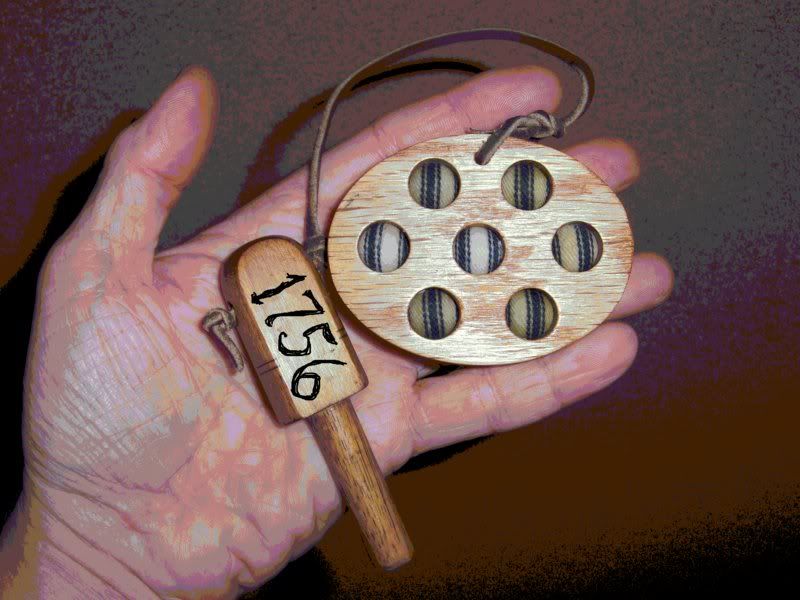Au Contrare! I want to have the Best and Most information shared on this forum- not limit research, or cut people off with insults, and claims of superior knowledge. The only way that occurs is to let everyone express their opinions, and knowledge. I too don't like broad blanket statements that someone's book is questioned. By Whom? Why should I believe them??
I have been subjected to peer review on primary scientific research I have done, and published in the past. I wanted and hoped that the Experts would tear it apart. I was exhausted in the kinds of questions to ask to find a different answer than I did reach. My co-author was of the other mind, not expecting any criticism at all. There was none. Since that article was published in the Journal of Forensic Sciences we have sent copies all around the world. Our work has been cited in footnotes in other books, and articles. Its been used by teachers to instruct students on Statistics. :barf: :shocked2: :surrender:
As much as I dislike some of the subject areas mentioned, I still look forward to someone re-checking my work, and blowing it up. That is my personal feeling about even my own hard work.
I was trained to do historical research in college. I have in fact chosen a few areas to research, and can bore to tears anyone who asks. :blah: :grin:
But, I think you answer your own question. One or two books don't cut it. Often you stumble on new evidence in a totally unrelated subject area, or in another country. Dr. Natalia Belding, Professor Emeritus of the U of Illinois spent a sabatical in Paris doing research in French, going over the archives on early Illinois history. One fact she share with The Exchange Club of Urbana was that instead of the Raid on Kaskaskia being a big secret, she found letter from the Mayor( French) to the Governor of Virginia, begging him to send an expedition to seize the island and the Colony from the British. The mayor kept contact with the forces as they approached, and actually made provisions for all the small boats, canoes, etc. to be taken over to the Illinois side of the river, the night that the raiders arrived, so they could boat across the Missisippi River en masse, and quickly seize the British forces without a lot of bloodshed.
In English( and American) accounts, there is mention of the forces crossing the river in boats, but no mention of how the boats were conveniently present at the right side of the river, for their use. It only took 230 years for that truth to be known by historians.
So, I welcome more research. My only complain is the arbitrary cutting off of comments based on logic, whenever we get into a subject area where we have NO reasonable expectation of there ever having been much written records about the subject.
Immigrants often didn't speak or write English, well. They were largely scattered, and NOT living in cities. Transportation was by boat, or horseback on poor trails. Much of daily living for the very poor was never written down- and is largely unknown outside of Europe, where distances from cities was shorter, and the percentage of the population that could read and write was higher, than in the colonies. Knowing that, from my training, I find it quite plausible that we will never find letters, or diaries, or books long lost, that describe how everything was done by early settlers.
The same frustration greets researches in every area of colonial life. Just ask the folks that have been rebuilding Williamsburg, or some of the other Forts and towns around the Eastern U.S. They are literally scratching the truth from the ground, with spatulas, as archeologists.
Its also quite plausible that the only written records we will every find are obscure reference that have found some way to survive all the European wars, and tell their story. If something is known to have been done, or used when Matchlocks were the dominant firearm, surely its not outrageous to believe that these ideas carried over to the Flintlock era.
I know this disturbs some people. I am sorry about that. But, it is also the truth. If there is anything historical research seeks to expose, it must be the truth. And that truth sometimes changes as new information comes to light. Live with it. The rest of us have no choice. :thumbsup:






